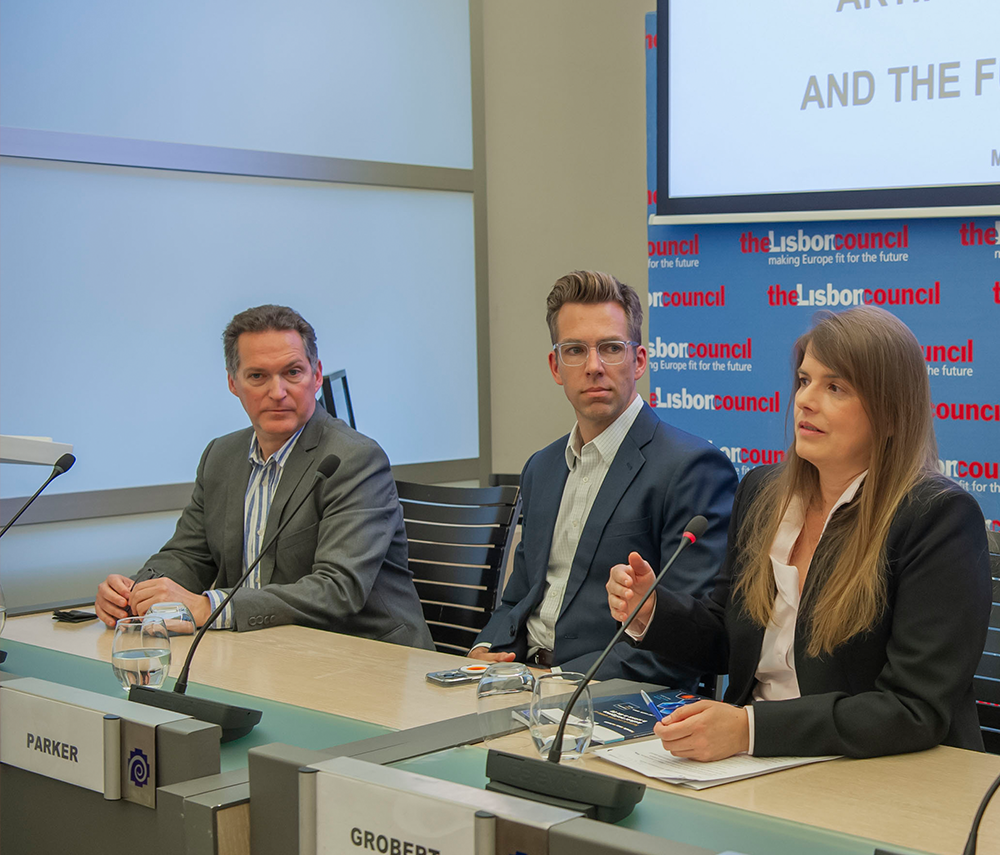April 2024
Artificial Intelligence and the Future of Science

Further adoption of artificial intelligence will be crucial to retain European scientific excellence and global competitiveness across disciplines, from developing drugs to anticipating the effects of climate change. With a focus on the opportunities and trade-offs between climate goals and innovation, the Lisbon Council convened the High-Level Roundtable on Artificial Intelligence and the Future of Science to discuss the uptake of artificial intelligence by scientists, the bottlenecks for further adoption and future policy tools.
The discussion welcomed Nicole Grobert, professor of nanomaterials, University of Oxford; Francisco J. Doblas-Reyes, head of the earth sciences department, Barcelona Supercomputing Centre; Liviu Stirbat, head, industry 5.0 and AI in science unit, directorate general research and innovation at the European Commission; Joshua Parker, senior director for corporate sustainability, NVIDIA Corporation; Diana Khrushchova, AI direction manager at the ministry of digital transformation of Ukraine; and Valeryia Ionan, deputy minister for Eurointegration at the ministry of digital transformation of Ukraine. Signe Ratso, deputy director general, directorate-general research and innovation at the European Commission also shared her insights wrapping up the high-level roundtable.
Download Francisco J. Doblas-Reyes Presentation
Download Liviu Stirbat Presentation
Read Artificial Intelligence for Scientific Discovery: Is Europe Ready for It?